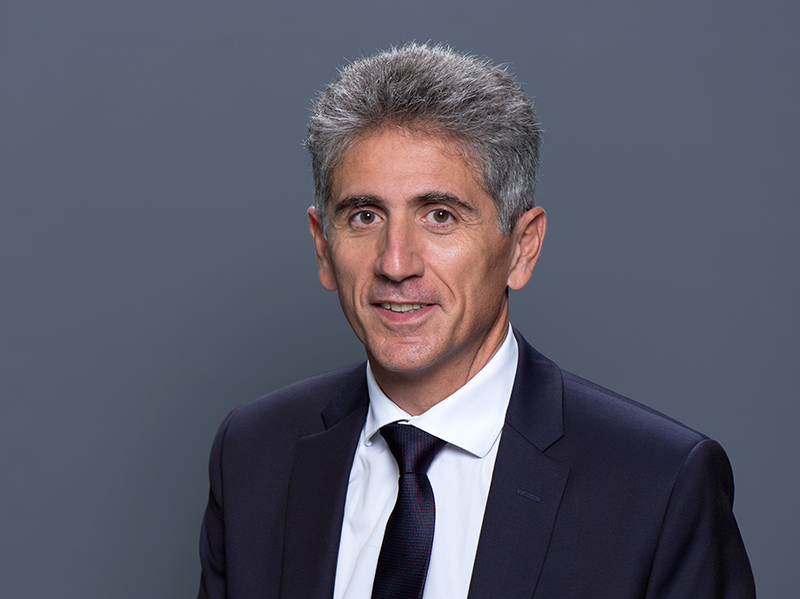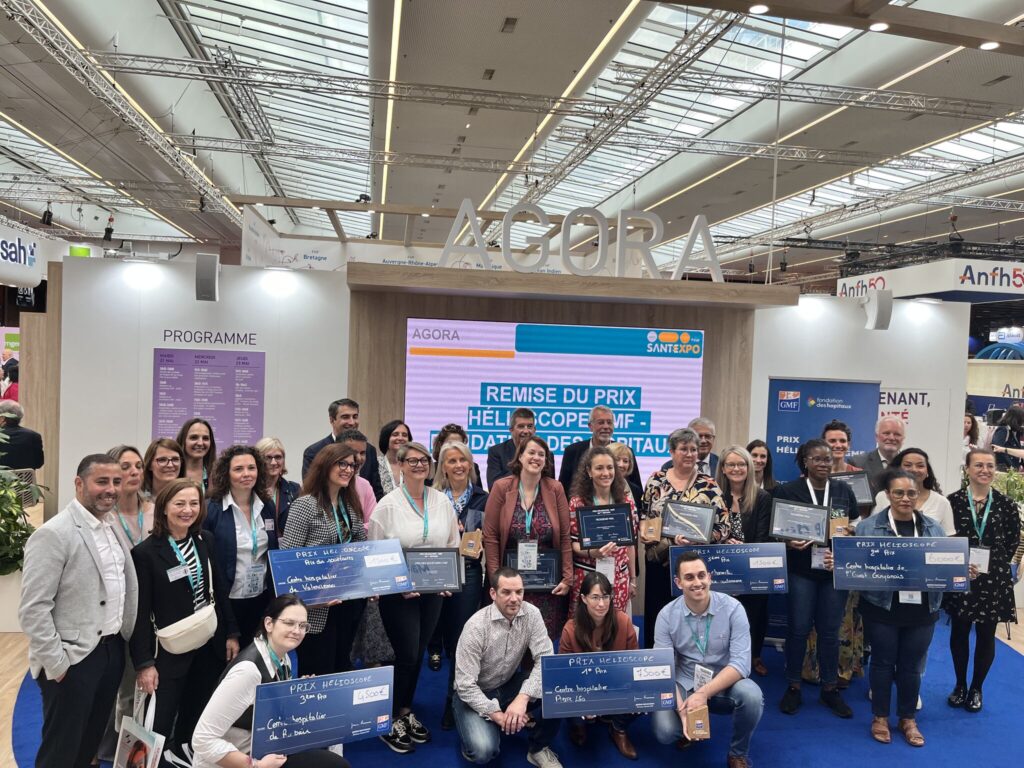The patient experience in intensive care: before, during and after

Led by Jean-Daniel Chiche, President of Fonds 101 and Head of the Resuscitation Department at Lausanne University Hospital, the main aim of the conference was to provide a comprehensive overview of the negative impacts of medical resuscitation, and the most effective strategies for dealing with them. The conference was structured into three distinct phases: pre-resuscitation, resuscitation and post-resuscitation.
Before resuscitation
Why is there a persistent lack of knowledge about medical resuscitation?
Medical resuscitation remains a field that still raises many questions and is marked by persistent prejudice.
From the point of view of patients’ loved ones, resuscitation is perceived as a hostile, even frightening environment, and families are unprepared for this reality, which often leaves them in a state of shock. Explaining often complex situations to family members also proves difficult. It is estimated that almost 50% of families are unable to fully grasp the information they receive in such circumstances.
The media also exert a major influence on our perceptions of medical resuscitation, and their role was even more prominent during the pandemic, when health communication became intensive, both in France and worldwide. Health-related topics are complex to tackle on TV, as they require in-depth explanations and speakers often have very little time to express themselves on these issues.
It was thanks to the pandemic that the role of medical resuscitation was revealed to the general public, but the news came as a shock to onlookers, fuelling the association of resuscitation with death in many people’s minds to this day.
According to Jean-Daniel Chiche, medical resuscitation is the word TOMORROW, redefining the meaning of the word “tomorrow” by confronting us with the uncertainty of what tomorrow holds.

It was with this aim of changing perceptions and fostering progress in the field of medical resuscitation that Foundation 101 was established.
It is imperative to find a more effective approach to resuscitation. The founders of Foundation 101 have identified the challenges facing this specialty and are proposing concrete, innovative solutions to reduce mortality.
On average, each individual will spend 2 times in an intensive care unit in his or her lifetime. It is therefore crucial to foster the emergence of a community of citizens aware of the issues involved in medical resuscitation.
During resuscitation
Medical resuscitation encompasses much more than just a patient and medical monitoring devices. It also involves a team of professionals who are committed to the patient, as well as family and friends who are full members of this team. It is essential to recognize their importance in transforming the patient experience, and they must provide us with essential information about the patient.
Building a meaningful care plan inevitably involves this stage, taking into account the involvement and knowledge of loved ones in the patient’s care process.
How can we capture the patient experience?
Medical resuscitation leads to suffering for patients, such as weight loss, reduced energy, loss of appetite, insomnia, nervousness, depression, and much more.
Treatments exist to alleviate these symptoms, but it’s vital to evaluate them in greater depth.
Certain factors are associated with procedural pain intensity, including the ability to predict pain, the intensity of pain experienced before the procedure, and the fact that the procedure is not performed by a nurse.
It’s worth pointing out that the memory of pain persists even after discharge from intensive care, with some people still remembering the suffering they endured. So it’s vital not to underestimate pain, and to understand the steps that lead to it.
Communicating when you wake up
The first sensations on waking up in intensive care represent a major challenge for regaining normal perception and environment.
It is essential to design a resuscitation room that promotes optimal recovery, which could include the installation of an “anti-delium room”.
This approach could include elements such as spatio-temporal orientation aids, such as clocks and large calendars, to help patients navigate time and space. An area dedicated to loved ones could also be set up, with armchairs and chairs to recreate a home-like atmosphere.
It would also be important to make resuscitation devices, such as ventilators and infusions, invisible to the patient’s eyes, to minimize their impact on awakening.
Finally, installing a ceiling screen could enable patients to watch TV or perform cognitive activities, contributing to their entertainment and stimulation.
In addition, studies show that a good understanding of the resuscitation environment and the patient’s situation can limit the psychological impact of the resuscitation experience on patients and their families.
With this in mind, the 101 Foundation has developed Lifemapp, a web application designed to explain what resuscitation is, and to provide advice on how to better cope with the experience. Lifemapp offers a personalized space for introducing the intensive care unit, a comprehensive and informative welcome booklet, and a guide to preparing patients for discharge.
These resources help families and patients to better understand the information communicated by healthcare professionals, promoting better communication and a clearer understanding of the situation.
After resuscitation
The post-operative phase is of crucial importance, as it requires consideration of possible after-effects (such as feelings of abandonment, vulnerability and ambivalence towards the resuscitation experience, which can arouse both positive and negative emotions).
After the resuscitation period, a complex journey awaits the patient. He must, for example, learn to take care of himself, reintegrate his social and family roles, undergo rehabilitation sessions, and eventually return to work.
Barely 50% of patients were able to return to work after one year.
It is therefore essential to understand the physical and psychological after-effects (such as depression and anxiety) suffered by patients.
It’s important to note that many patients experience post-traumatic stress related to the resuscitation experience, particularly between the third and sixth month after discharge.
The logbook hypothesis
Human beings are constantly trying to make sense of what happens to them, and in intensive care, patients lose their bearings. The use of a diary can help patients to “fill in the blanks” and reappropriate their history, enabling them to regain control of their lives at the end of their stay in intensive care.
The diary offers the patient a better understanding of certain aspects, such as the reason for his long recovery period, or the attitudes of healthcare professionals and relatives towards him.
The Foundation 101 IT team has developed the Lifemapp Diary, a digital logbook. This fully secure application, created by expert professionals, facilitates the work of caregivers, encourages the participation of family and friends, and enables patients to consult their information in complete confidentiality.

At Moment Care, our digital entertainment and information platform can contribute, in its own way, to improving the experience of intensive care patients. Indeed, our platform includes hundreds of contents (live TV, movies, series, podcasts, etc.) to make the experience more enjoyable.
Suggestions

How do e-learning and entertainment enhance the patient experience in hospitals?
E-learning and entertainment enrich patients’ hospital experience. Here’s how it works

The hospital of tomorrow: patient-centric
The hospital of tomorrow puts the patient experience at the heart of care, thanks to advances in safety, fluidity and innovation.
These pillars are redefining hospital care.

Prix Hélioscope-GMF 2024 at SantExpo
Prix Hélioscope-GMF 2024 at SantExpo At SantExpo 2024, the twenty-sixth edition of the Helioscope-GMF Awards took place on May 23,


